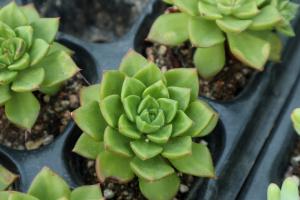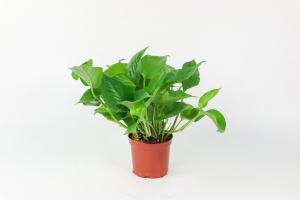How to Fertilize Tomato Plants Organically
If you're growing tomato plants and want to do so organically, you need to know how to fertilize them properly. Fortunately, there are several simple and effective ways to help your plants thrive while avoiding the use of synthetic chemicals. From compost and manure to natural fertilizers and more, here are some strategies for fertilizing tomato plants in an eco-friendly way.
Compost
One of the easiest and most effective ways to fertilize tomato plants is with compost. Made from decomposed organic material like yard waste, food scraps and manure, compost provides a rich source of nutrients for plants. Compost can be added to the soil before planting or as a top dressing throughout the growing season. Additionally, using a compost tea can provide your plants with an extra boost.
Manure
Manure is another excellent organic fertilizer option for tomato plants. Chicken, cow or horse manure can all be used to enrich the soil, but it's important to use aged manure that won't burn your plants. Fresh manure can be too hot, releasing too much nitrogen into the soil and potentially causing harm to plants. Therefore, if you use manure, ensure it is well-aged, composted or has been used in prior years.
Natural Fertilizers
Natural fertilizers can be purchased in stores, but it's important to know what to look for. Look for fertilizers that derive their nutrients from organic materials like bone meal, blood meal, seaweed or rock dusts like greensand or rock phosphate. When using natural fertilizers, it's important to follow the instructions on the package, taking care not to over-fertilize, which can result in unhealthy plants.
Other Organic Options
Other organic fertilizers for tomato plants include fish emulsion, which is made from fish by-products, and molasses, which is a source of both nutrients and sugars that help feed beneficial microorganisms in the soil. Epsom salt can also be added to the soil to supplement magnesium, which helps with fruit formation, and provides a dose of sulfur, an essential mineral for plants.
Conclusion
Fertilizing tomato plants organically isn't difficult, but it does require some planning and effort. By using compost, manure, natural fertilizers, and other organic options, you can help your plants thrive and produce delicious, healthy tomatoes without relying on synthetic chemicals. Start by testing your soil to see which nutrients are lacking or if there is any contamination. Determine which organic fertilizers work best for you and your garden. By following these simple steps, you can have a bountiful tomato harvest for years to come!

 how many times do yo...
how many times do yo... how many planted tre...
how many planted tre... how many pine trees ...
how many pine trees ... how many pecan trees...
how many pecan trees... how many plants comp...
how many plants comp... how many plants can ...
how many plants can ... how many plants and ...
how many plants and ... how many pepper plan...
how many pepper plan...































